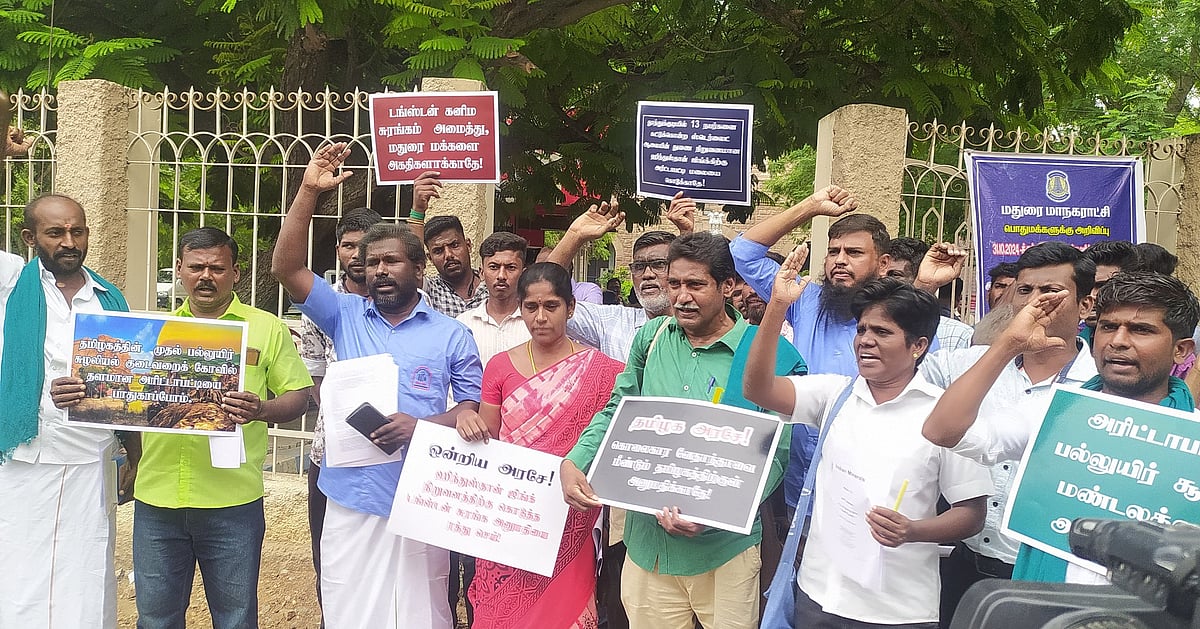 |
|
The Indian government's recent decision to re-examine the Nayakkarpatti Tungsten block in Tamil Nadu highlights a growing tension between economic development and environmental conservation. The proposed mining operation, awarded to Vedanta Resources, a multinational conglomerate, has sparked significant controversy due to its potential impact on ecologically sensitive areas within the region. The ministry's intervention underscores the importance of balancing economic gains with the preservation of natural habitats and biodiversity.
The re-examination process aims to meticulously identify and exclude ecologically sensitive areas from the mining lease. This crucial step involves a detailed assessment of the region's biodiversity, including flora, fauna, and water resources. Advanced technologies such as remote sensing and GIS mapping will likely play a significant role in accurately mapping these sensitive zones. Furthermore, consultations with local communities, environmental experts, and relevant scientific bodies will be instrumental in ensuring a transparent and comprehensive evaluation.
The temporary suspension of the Letter of Intent (LOI) issued to Vedanta demonstrates the government's commitment to a more cautious and environmentally responsible approach to resource extraction. This pause allows for a thorough review of the project’s environmental impact assessment, ensuring that it fully complies with the country's environmental regulations. The decision also reflects a growing awareness of the long-term consequences of unchecked resource exploitation and its impact on the delicate balance of ecosystems.
The case of the Nayakkarpatti Tungsten block underscores the complexities involved in balancing economic development with environmental stewardship. The extraction of tungsten, a crucial component in various high-tech industries, contributes significantly to the national economy. However, this economic benefit must be carefully weighed against the potential environmental costs, including habitat loss, biodiversity depletion, and pollution. This situation demands a multi-faceted approach that integrates economic considerations with environmental safeguards, aiming for sustainable development practices.
The outcome of the re-examination will set a significant precedent for future mining projects in India. It will serve as a benchmark for evaluating the environmental impact of resource extraction and will influence the government's approach to balancing economic growth with environmental sustainability. The transparent and participatory nature of the review process is essential to ensuring public confidence and building trust in the decision-making process. Transparency will ensure that the public understands the scientific basis of the decisions made and the measures put in place to mitigate potential environmental damage.
Looking ahead, the Nayakkarpatti Tungsten block case presents an opportunity for India to strengthen its environmental regulations and improve its environmental impact assessment processes. It highlights the need for robust environmental legislation, effective enforcement mechanisms, and increased public participation in environmental decision-making. The successful resolution of this case will not only protect the environment but also enhance India's reputation as a responsible and environmentally conscious nation. The integration of best practices from other nations with strong environmental protection policies could further enhance the effectiveness of these efforts.
Furthermore, the incident emphasizes the need for robust corporate social responsibility (CSR) policies from companies like Vedanta. While profit generation is crucial, it shouldn't come at the expense of environmental integrity and community well-being. Proactive environmental mitigation plans and community engagement strategies are essential for mining projects to gain social license to operate. This includes transparent communication about the project’s impact, active participation in stakeholder consultations, and commitment to environmental rehabilitation post-mining operations.
The future of the Nayakkarpatti Tungsten project hangs in the balance, but the government's decision to re-examine the project and temporarily halt the LOI signals a positive shift towards a more environmentally responsible approach to natural resource management. The transparent and rigorous assessment will be vital in ensuring that economic progress does not overshadow the long-term ecological health of the region. The outcome will have significant implications for future mining projects and for India's commitment to sustainable development.
Source: Centre to re-examine Tungsten block in Tamil Nadu to exclude eco-sensitive areas
